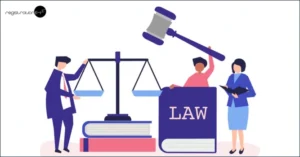On July 15, the Reserve Bank of India (RBI) requested that banks and other financial institutions allow defaulting borrowers enough time to make amends before labeling them as “fraud accounts.”
According to a release from the RBI, banks must now provide fraudulent account holders with show-cause warnings that include all of the fraud’s facts. Additionally, the central bank statement stated that defaulters should be given a sufficient amount of time—”not less than 21 days”—to give answer to the show-cause notice.
The Supreme Court of India stated in a ruling in March 2023 that banks cannot independently label a bank account as fraudulent without first providing the account holder with an opportunity to plead their case. This led to the modification of the current rule.
The borrowers must be given a notice allowing them to explain the audit report’s findings and the opportunity to express themselves in front of the regulated institutions, per the natural justice principles that the regulated entities must uphold. This should happen before an account is labeled as a fraud account under RBI’s master directions.
The board of financial institutions is required to assess their fraud risk management policy once every three years. Additionally, the banks must form a special board committee that would enable them to keep an eye on fraud instances and respond appropriately.
The latest modification to the master directives requires banks to establish an Early Warning Signals (EWS) framework and to identify fraudulent accounts that raise the bank’s suspicions for any number of reasons in the event of possible fraud. This will fall under the general policy for risk management.
Apart from the aforementioned requirements, banks have been directed by the RBI to enhance their EWS system by identifying appropriate possible fraud indications.
According to the RBI announcement, these guidelines now also apply to Housing Finance Companies, Rural Cooperative Banks, and Regional Rural Banks in an effort to improve fraud risk management frameworks and processes.






